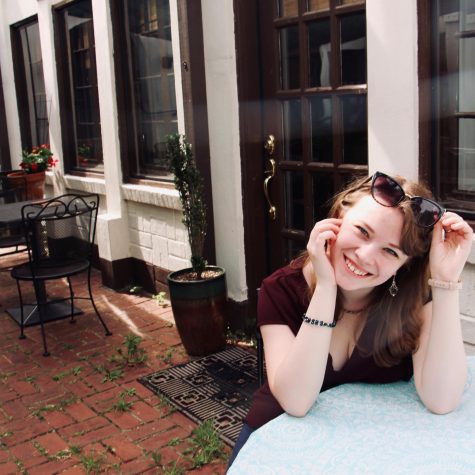Lanegran Days speaker lectures on Black geographies

March 31, 2022
On Thursday, March 24, Macalester welcomed Dr. LaToya Eaves to deliver a lecture entitled “‘… but not under conditions of our own choosing.’: Black livingness as method in geography” for the geography department’s annual Lanegran Days, a week of events in honor of emeritus geography professor David Lanegran who retired in 2015. Eaves discussed the development of Black geographies and how treating it as a research method could challenge the discipline’s more traditional conventions. According to the Black Geographies specialty group of the American Association of Geographers, the subdiscipline strives to promote the “study of the social, political, cultural, economic, and ecological aspects of the race in/and geography.” The title for the lecture comes from scholar Ruth Wilson Gilmore’s quote: “We make history, but not under conditions of our own choosing.”
The event took place in the Kagin Ballroom, and was the first in-person Lanegran Days keynote event since February 2020. The Macalester community also had the option to tune in over Zoom; 110 people registered to watch Eaves’ lecture virtually, including emeritus geography professor David Lanegran.
Geography professor Daniel Trudeau moderated the event. Gamma Theta Upsilon (GTU), Macalester’s chapter of the international geography honor society, co-President Nethmi Bathige ’22 spoke about recent GTU events before giving a land acknowledgement. Executive Vice President and Provost Lisa Anderson-Levy then said a few words before introducing the keynote speaker.
“I’m honored to be a part of a community that thoughtfully balances tradition with innovation,” Anderson-Levy said.
Eaves, an assistant geography professor at the University of Tennessee, is one of the founders of the Black geographies specialty group of the American Association of Geographers, as well as a leading scholar in the subdiscipline. Eaves’ other specialties include feminist geographies, Black feminism, sexuality studies and the American South. Her scholarship focuses on how feminist perspectives by women of color can be used to understand social progress and change in the American South.
Eaves spent the first part of the lecture speaking on the theoretical developments of Black geographies before going into her own work that centers Black women’s voices and Black feminist activism. She discussed how the erasure of these perspectives have limited geographic understanding of spatial and social processes.
“We make concealment happen,” Eaves said. “It is not natural, but rather names and organizes where a racial and sexual differentiation occurs. This includes those who might not have risen to large-scale recognition.”
After Eaves finished her lecture, she took questions from the audience. One student asked about the role of music in Black geographical method, noting Eaves’ use of “Ella’s Song,” a song inspired by civil rights activist Ella Baker, earlier in the presentation.
“I think that it’s very important to include creative work,” Eaves said.
Eaves reiterated that creative work – whether that be songs, text, or art – is crucial to the many sources needed to study Black geographies. She then circled back to a quote from scholar Katherine McKittrick that she referenced earlier in the presentation to hone in on that point: “Black method is precise, detailed, coded, long and forever. The practice of bringing together multiple texts, stories, songs and places involves the difficult work of thinking and learning across many sites, and thus coming to know, generously, varying and shifting worlds and ideas.”
While Black geographies is still a relatively new sub-discipline within academia, Eaves is drawn to its interdisciplinary nature as it requires the use of many different ways of thinking and knowing, as well as centers on lived experiences. Eaves recommended McKittrick’s book with scholar Clyde Woods, Black Geographies and the Politics of Place, to those interested in learning more about Black geographies. She also encouraged audience members to study the work of additional Black geographies scholars including Harold Rose and Bobby Wilson. You can follow Eaves on Twitter @spacedemands.













Nick S • Apr 1, 2022 at 4:35 pm
Great article. One correction: Ruth Wilson Gilmore was quoting Marx when she said that!